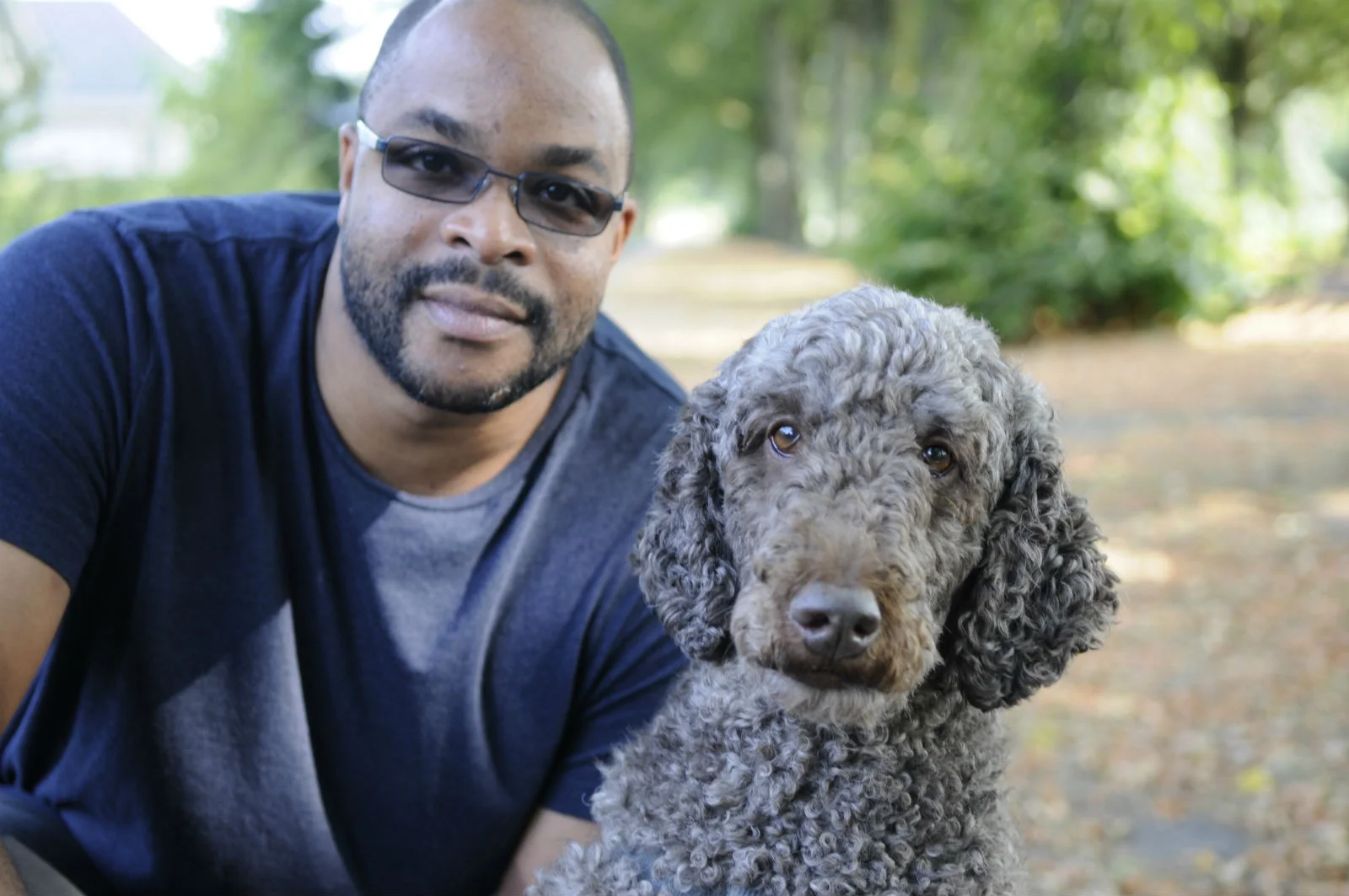Buddy: Touching Doc on Service Dogs Traces Human-Canine Relationships
By Liam Lacey
Rating: A
Dogs and humans evolved together over the past 30,000 years, which is why, according to a study released this week on dog’s eyebrow muscles, we humans are such suckers for those puppy-dog stares. You’ll see lots of those soulful canine gazes in Buddy, the latest documentary from the Peru-born Dutch filmmaker Heddy Honigmann.
Trevor with Mister.
Honigmann’s specialty, over her long and much-lauded career, is emotional intimacy. Her subjects are as varied as war widows, erotic poetry, subway buskers and cemeteries. In Buddy, she explores what role service dogs can play working with people who have psychological and physical disabilities. Through the film, set in The Netherlands, we meet six human-dog pairs. And while there are plenty of “ah” moments, this modest film is really about a frontier of human and dog interdependence.
Edith, an athlete in her eighties who was blinded as a child in the Second World War, is able to run through the forest with her rust-coloured retriever, Makker. A boy with autism, Zeb, explains how his labradoodle, Utah, helps distract him from his moments of anger, and Zeb’s mom explains that the dog simply has more patience than she does.
Trevor, an Afghanistan war veteran suffering from post-traumatic distress disorder, relies on Mister to wake him from his nightmares and flashbacks, allowing Trevor’s wife to get a full night’s sleep. The dog plays with his children, provides Trevor with a sense that someone is “watching his back” when he’s outside the house, and in general, holds his family together.
Honigmann cuts fluidly back and forth among a half-dozen dogs and their humans. Possibly in deference to canine consciousness, Buddy seems to exist in a series of present moments. There is no background about the bureaucracy that provides the training and selection of the animals. There are few details about the specifics of their owner’s disabilities. When Annebel, a student who uses an inhaler and a wheelchair, requires sudden medical attention at a rock concert, we know nothing of the crisis. What we see is her dog, Kay, atop her gurney in the medical tent, clinging close to her.
A few times, Honigmann presses people from off-camera to define their relationship with their animals. Hans, a psychologist who was blinded in a train accident, was able to continue his career, thanks to guide dogs. Is the relationship love? Hans hems and haws for a while before answering: “People have problems with that word because it’s meant for humans,” he says. “But to be honest, the fitting word is love.”
Most pet owners would concur though that guide dogs provide humans with something almost as fundamental.
“He’s my freedom,” says Edith, a middle-aged woman with limited mobility. Her dog, Kaiko, open the refrigerator and takes out food she wants, helps Edith dress in the morning and tucks her into bed at night. Kaiko also excitedly collects printouts from her computer, though he’s a good dog, he’s not perfect. He leaves wet spots on the corners of the pages.
Buddy. Directed by Heddy Honigmann. Opens June 21 at Toronto's Hot Docs Ted Rogers Cinema.

